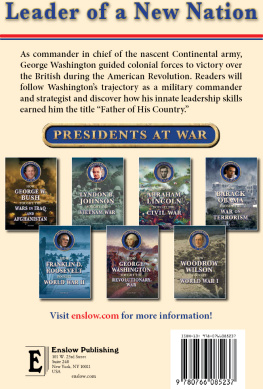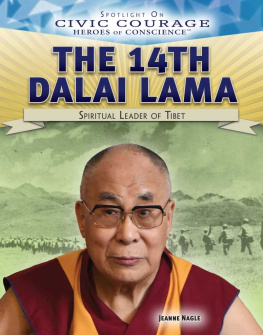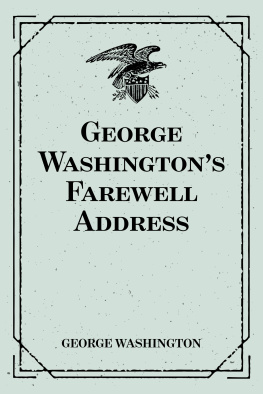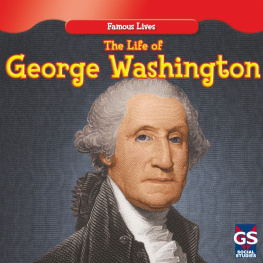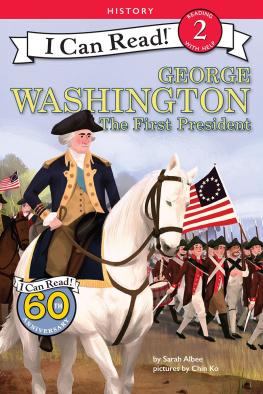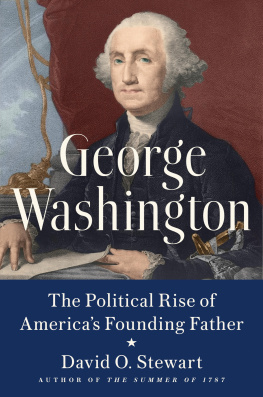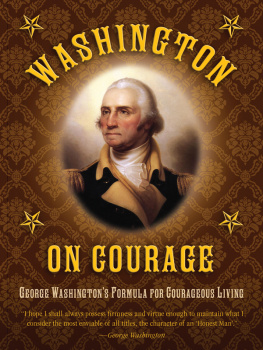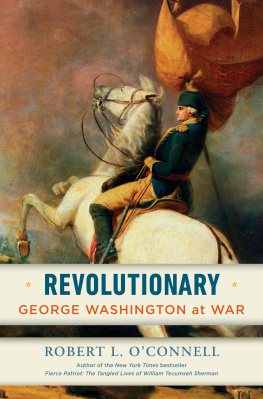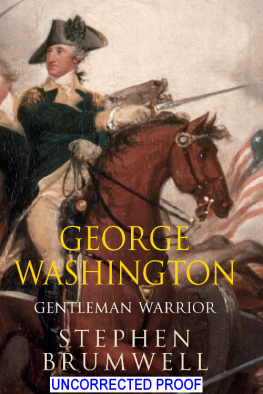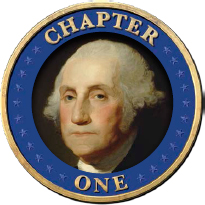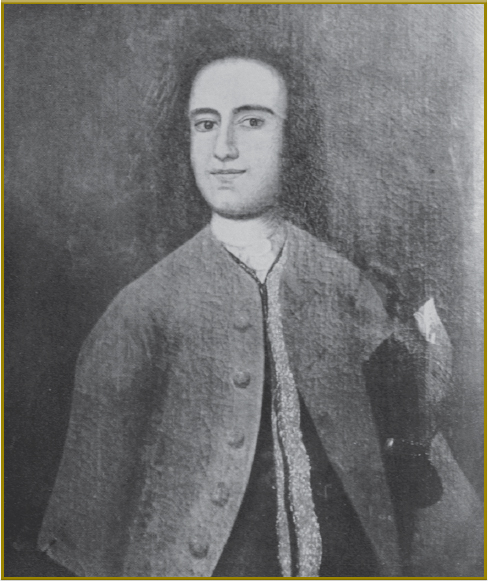Published in 2018 by Enslow Publishing, LLC.
101 W. 23rd Street, Suite 240, New York, NY 10011
Copyright 2018 by Enslow Publishing, LLC.
All rights reserved.
No part of this book may be reproduced by any means without the written permission of the publisher.
Library of Congress Cataloging-in-Publication Data
Names: Nagle, Jeanne, author.
Title: How George Washington fought the Revolutionary War /Jeanne Nagle.
Description: New York : Enslow Publishing, 2018. | Series: Presidents at war | Includes bibliographical references and index. | Audience: Grades 712.
Identifiers: LCCN 2017004617 | ISBN 9780766085237 (library bound)
Subjects: LCSH: Washington, George, 17321799Juvenile literature. | PresidentsUnited StatesBiographyJuvenile literature. | GeneralsUnited StatesBiographyJuvenile literature. | United StatesHistoryRevolution, 17751783Juvenile literature.
Classification: LCC E312.66 .N34 2018 | DDC 973.4/1092 [B]dc23
LC record available at https://lccn.loc.gov/2017004617
Printed in the United States of America
To Our Readers: We have done our best to make sure all website addresses in this book were active and appropriate when we went to press. However, the author and the publisher have no control over and assume no liability for the material available on those websites or on any websites they may link to. Any comments or suggestions can be sent by e-mail to .
Photo Credits: Cover, pp. Three Lions/Hulton Archive/Getty Images.
INTRODUCTION
CHAPTER 1 WHERE IT BEGAN
CHAPTER 2 A FIRST TASTE OF BATTLE
CHAPTER 3 AT WAR AND AT HOME
CHAPTER 4 PRELUDE TO A REVOLUTION
CHAPTER 5 THE BATTLE FOR INDEPENDENCE BEGINS
CHAPTER 6 WIN SOME, LOSE SOME
CHAPTER 7 VALLEY FORGE TO VICTORY
CHAPTER 8 PRESIDENT WASHINGTON
CONCLUSION
CHRONOLOGY
CHAPTER NOTES
GLOSSARY
FURTHER READING
INDEX
George Washington is known as the father of our country. Even as a young man, Washington was a skilled horseman. This trait would serve him well in battles later in life.
INTRODUCTION
G eorge Washington was a man of many talents. As a young man, he learned the necessary skills to become a surveyor, measuring and mapping parcels of land to determine the boundaries of ownership. After he inherited his stepbrothers estateand purchased or otherwise earned hundreds of acres beyond thathe became a successful planter and gentleman farmer. From there, he segued into roles as a miller, exporter, and distiller of whiskey. Yet arguably the skills and attributes most associated with Washington revolve around his military prowess and political acumenthe latter was particularly evident during his two-term tenure as president of the United States.
Not surprisingly, the events of Washingtons life influenced and informed what was to come on his path to renown. For instance, traversing the uncharted wilderness as a surveyor would later serve him well as he traveled and fought in the French and Indian War. Similarly, his experiences with Native American tribes during that conflict would prove useful while fighting the British during the American Revolution. Ably commanding first the Virginia militia and later the Continental Army prepared him to assume the mantle of leadership when he became the new nations first political leader.
Unlike other US presidents, such as Abraham Lincoln and Franklin Delano Roosevelt, Washington did not serve as our nations president during active wartime, since neither the presidency nor the country itself had been established during the French and Indian War or the American Revolution. Yet he did bring a certain level of political astuteness to his military dealings. Furthermore, his actions had a direct bearing on how each of these conflicts began, were waged, and ended. In the American Revolution, his leadership directly impacted the success of a group of rebels struggling to cast off the colonial manacles of Britain to stand as their own nation in charge of its own destiny.
Washingtons political handling of matters of war was on display during other conflicts and uprisings that took place during his time in the new nations highest office. His sending in army troops to settle a land dispute with British-backed Native American tribes and squelching the Whiskey Rebellion, both in 1794, reveal a man not afraid to use military might. His insistence on staying neutral in matters of foreign affairs, meanwhile, was a common theme throughout his presidency. Washington did not believe the United States was ready to enter into another war so soon after the revolution that had won the freshly formed nation its independence from Britain.
Washington also exhibited expertise in conflict resolutionalthough on a smaller scale than during a years-long warby mediating disputes among his cabinet members. Most famously, he was often forced to act as a referee between his secretary of state, Thomas Jefferson, and Alexander Hamilton, his secretary of the treasury. As president, he also fended off attacks on his own character, notably from Thomas Paine. It was a skill Washington grew adept at while in charge of the Continental Army, as detractors worked behind the scenes in an attempt to relieve him of his command.
WHERE IT BEGAN
T he roots of George Washingtons military career can be traced back to the future general and commanders teenage years. George was born on February 22, 1732. He was the eldest child of Augustine Washington and his second wife, Mary Ball Washington. (Mary and Augustine also had three more sons and a daughter.) Augustine was a successful tobacco planter and business owner in Virginia. He also was a land speculator, which is someone who buys land cheaply in the hope of selling it for more to make a profit.
Rather than wish to follow in his fathers footsteps, young George wanted to be like Lawrence, his half brother from his fathers first marriage. Lawrence was an officer in a colonial regiment who fought with the British in a war against Spain. He had sailed aboard the flagship of Admiral Edward Vernon and saw battle throughout the West Indies. Upon his return from war, Lawrence continued his military career after being appointed adjutant general for the Northern Virginia militia. Adjutants were essentially the second in command of military unitsin this case, colonial troops gathered to protect a specific portion of Virginia.
Portrait of Washingtons older brother, Lawrence, who exerted a great deal of influence, directly and indirectly, over young George.

